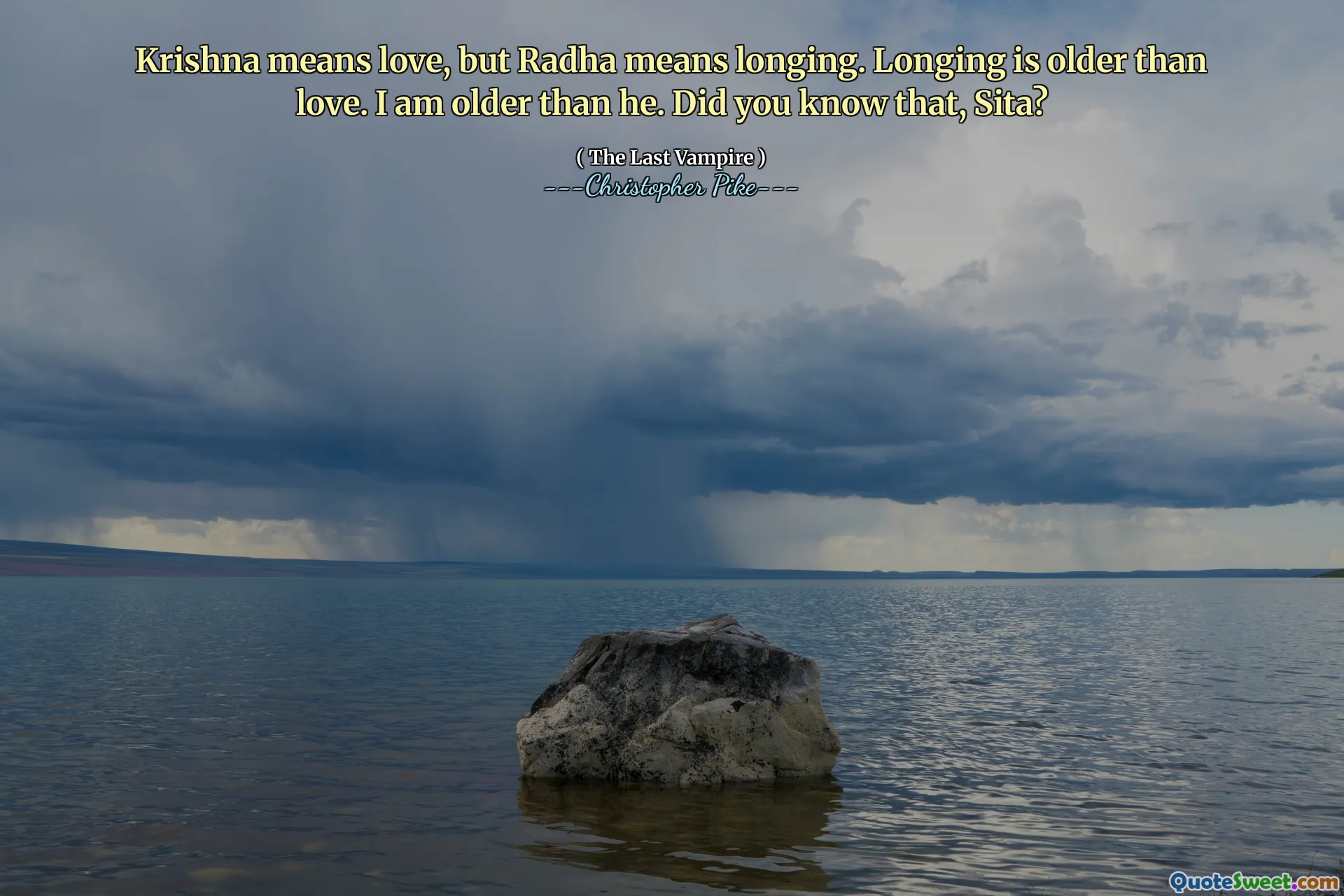
Krishna means love, but Radha means longing. Longing is older than love. I am older than he. Did you know that, Sita?
This quote delves into the profound relationship between love and longing, using the figures of Krishna and Radha as metaphors. Krishna, often associated with divine love, embodies the emotion in its purest, unconditional form, representing the ideal of love that is selfless and transcendent. Radha, on the other hand, signifies longing—an intense desire and yearning that predates love itself. The reflection that longing is older than love suggests that longing is the fundamental emotion that precedes and perhaps gives birth to love. It evokes the idea that desire and anticipation are deeply rooted in human consciousness before mature love can blossom. The speaker’s assertion that she is older than 'he' indicates a sense of wisdom or understanding that surpasses superficial or fleeting emotions; it hints at an awareness of the deeper, sometimes more raw and primal feelings that underpin love. Recognizing the timeless and primal nature of longing highlights its significance in shaping human connections and spirituality. This perspective invites us to consider that longing, with its accompanying pain and hope, is an essential ingredient in experiencing genuine love. It also underscores the idea that understanding ourselves—our desires, yearnings, and histories—allows us to grasp the nuances of love itself, making this quote not just a commentary on relationships but on human existence. Identifying with these mythological figures invites a broader reflection on how longing and love are universal experiences that transcend individual differences and cultural boundaries, revealing the timeless tapestry of human emotion.






